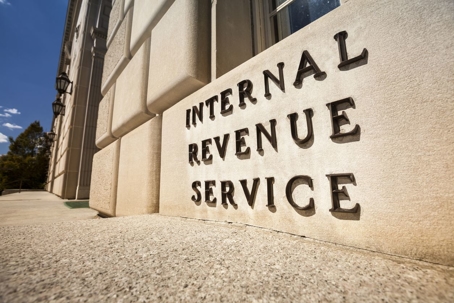Tax season can be a stressful time for many individuals and businesses, especially when the fear of an IRS audit looms overhead. While audits are relatively rare, taking proactive steps to minimize your risk can provide peace of mind and ensure compliance with tax laws. In this blog, we'll discuss effective strategies to reduce your risk of an IRS audit and navigate tax season with confidence.
The IRS Audit Process
An IRS audit is an examination of your tax return to verify that your reported income, deductions, and credits are accurate and comply with tax laws. Audits can be conducted through mail correspondence, in-person meetings, or field audits at your place of business.
While the prospect of an audit can be intimidating, it's essential to understand that most audits are conducted through mail correspondence and involve simple inquiries about specific items on your tax return. However, being prepared and minimizing red flags can reduce your likelihood of being audited.
Maintain Accurate Financial Records
One of the best ways to reduce your risk of an IRS audit is to maintain accurate and organized records of your financial transactions, income, and expenses. Keep detailed records of all income sources, including W-2 forms, 1099 forms, and any other income documentation.
Additionally, maintain documentation for all deductions and credits claimed on your tax return, including receipts, invoices, bank statements, and supporting documentation. Accurate record-keeping not only reduces your risk of an audit but also ensures that you can substantiate your deductions and credits if audited.
Report Income Accurately
Accuracy is key when reporting income on your tax return. Ensure that you report all sources of income, including wages, self-employment income, investment income, and any other taxable income. Use the appropriate forms and reporting mechanisms to accurately report each type of income.
Failing to report income accurately or omitting sources of income can raise red flags and increase your risk of an IRS audit. Double-check your income statements and ensure that they match the information provided by your employers, clients, and financial institutions.
Avoid Red Flags
Certain items on your tax return can trigger red flags and increase your risk of an IRS audit. While some red flags are unavoidable, taking steps to minimize them can reduce your audit risk.
Common red flags the IRS looks for include:
- Large charitable deductions compared to your income level.
- High business expenses relative to your income for self-employed individuals.
- Claiming excessive deductions or credits relative to your income.
- Discrepancies between reported income and information provided by third parties, such as employers and financial institutions.
File Electronically & On Time
Filing your tax return electronically and on time can reduce your risk of an IRS audit. Electronic filing is more accurate and efficient than paper filing, reducing the likelihood of errors that could trigger an audit. Additionally, filing your tax return on time demonstrates compliance with tax laws and reduces the likelihood of closer scrutiny by the IRS.
Seek Legal Assistance
While the prospect of an IRS audit may seem daunting, taking proactive steps to reduce your risk can provide peace of mind during tax season. By maintaining accurate records, reporting income correctly, avoiding red flags, and filing electronically and on time, you can minimize your audit risk and navigate tax season with confidence.
If you're ever unsure about your tax situation, consider seeking advice from a qualified tax attorney to ensure compliance with tax laws and regulations. Not only can our tax lawyers at Buchalter & Pelphrey Attorneys At Law provide this advice, but they can also provide any service you may need to avoid or contend with a tax audit.
For more information, contact us today.

